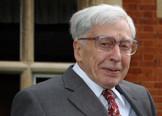Aggregated News

If the “cancel culture” is gunning for eugenicists, there are more than enough candidates. One of the most prominent is Robert Edwards, who won the Nobel Prize for Medicine in 2010 for developing in vitro fertilisation.
As Gina Maranto, a writer for the Biopolitical Times, reminds readers, he was a dyed-in-the-wool eugenicist:
Edwards was a long-time member and trustee of the UK’s Eugenics Society and then, under its new name, the Galton Society, as Osagie Obasogie detailed in Scientific American in 2013. In a December 1970 article in the same publication, Edwards and [Ruth] Fowler [his wife] foresaw and embraced the possibility that IVF would enable the selection of embryos according to their genetic characteristics, including “choosing male or female blastocysts.”
They also envisioned other manipulations of embryos, writing that while such experiments would present “challenges to a number of established social and ethical concepts,” they would bring great rewards. Edwards implicitly acknowledged the eugenical implications of his work in 1999 when he said, “Soon it will be a sin of parents to have a child that carries the...



